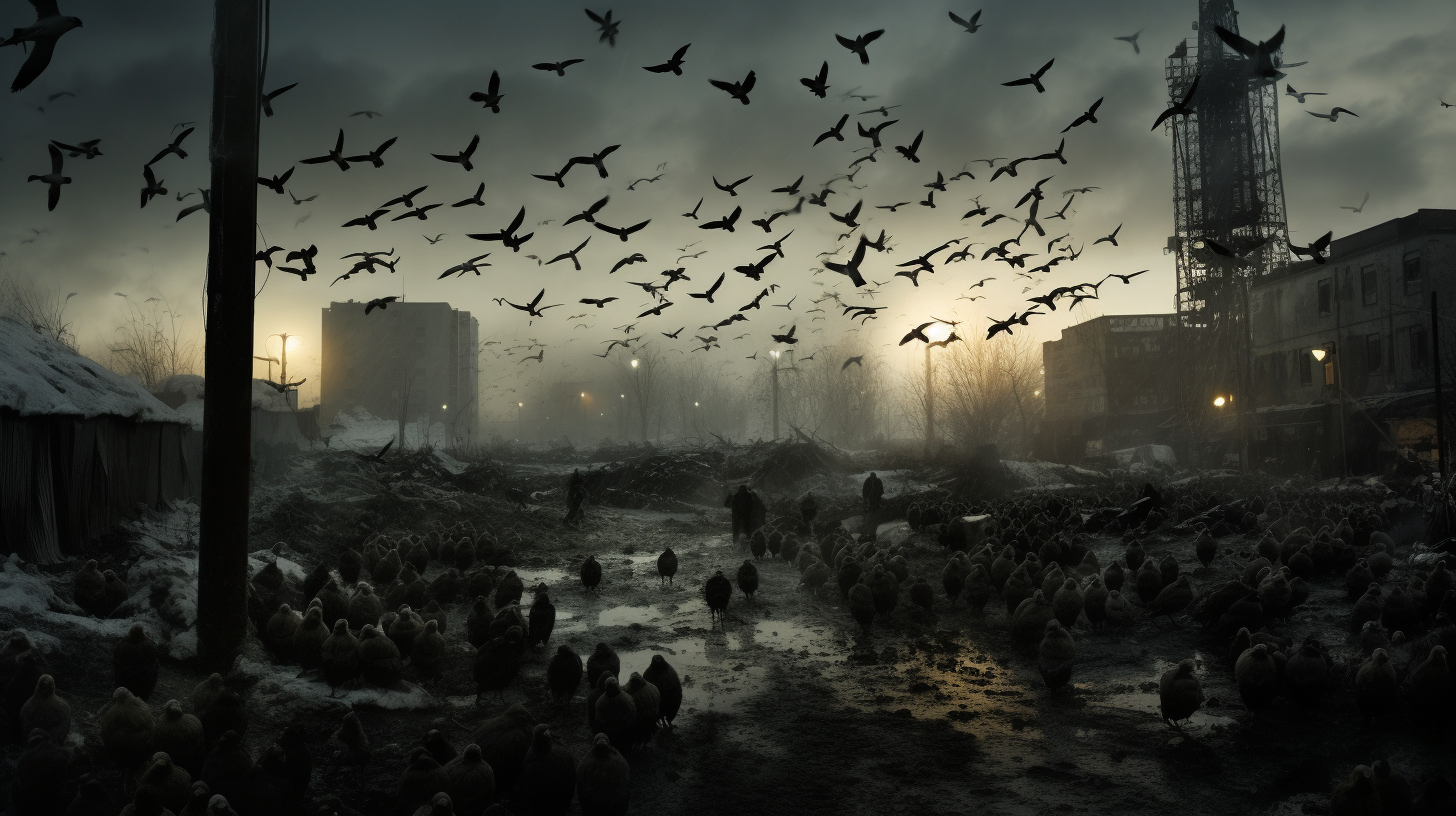In a world not unlike our own, a morning has dawned without a single chirp. The once-ubiquitous dawn chorus has fallen eerily silent, and for inhabitants of this planet, the silence is deafening. In ‘The Day the Birds Stopped Singing’, we delve into the day that marked the beginning of an eternal hush, exploring the consequences of this pervasive quietude on the environment, human psychology, and the fabric of society as a whole.
In this grim narrative, the birds’ disappearance acts as a harbinger of ecological doom. Scientists and laypeople alike stand in muted shock as the skies, once painted with the vibrant wings of avian life, are now a barren backdrop to the stark realization of their loss. It’s a disquieting tableau: trees bereft of movement, fields devoid of color, and a sense of loss that permeates the very air we breathe.
Research has indicated that the loss of birdsong has not just been a blow to the quality of human life, but an indication of failing ecosystems worldwide. Songbirds, a critical aspect of many interconnected food webs, served functions far beyond their melodic calls; they were pollinators, pest managers, and seed dispersers. Their absence has set off a chain reaction, triggering declines in plant diversity, an explosion in insect populations, and subsequent agricultural devastation.
Move beyond pure scientific analysis, and you encounter a cultural wasteland—a world where children grow up never knowing the music of the wild. This eerie silence has led to an increase in mental health issues, with reports citing a rise in occurrences of nature-deficit disorder. Renowned ecologist Dr. Jacob Hartley puts it succinctly: ‘The day the birds stopped singing was the day we truly began to understand the magnitude of our neglect.’
The societal impact is equally distressing. With the loss of natural soundscapes, cities have become cacophonies of mechanical noise, the hum of machinery, and the relentless drone of traffic. Nature’s calming influence has been replaced by a constant, inescapable sonic barrage that torments the human psyche, fundamentally altering our daily lives.
We are left with a paralyzing question: What happens when the world’s soundtrack ceases to exist? In searching for answers, the article discusses innovative, albeit dystopian, solutions that have been proposed. These include virtual reality experiences replicating bird sounds, and artificial ‘mechanical birds’ that play prerecorded songs, attempts to fill the aural void left by our feathered friends. Yet these technological band-aids cannot heal the ecological wound that has been inflicted.
The article closes with a poignant reflection on the unwavering silence that is now the hallmark of our reality—an indelible marker of what happens when the balance of nature is not just disrupted but demolished. It is a stark heralding that counters the whispers of hope—even as we grasp for solace in memories of what once was, we cannot escape the truth that the day the birds stopped singing was the day we lost a vital piece of ourselves.
